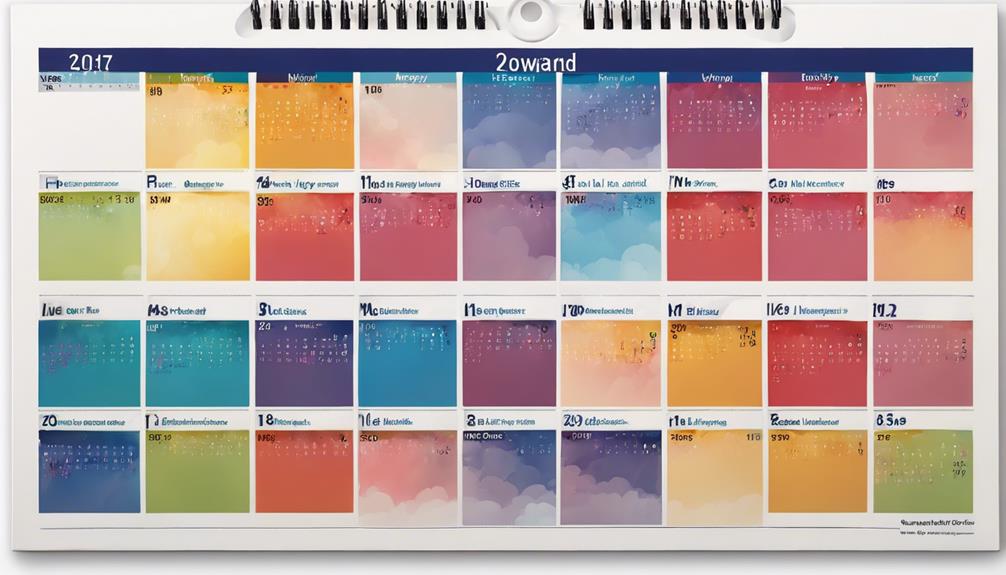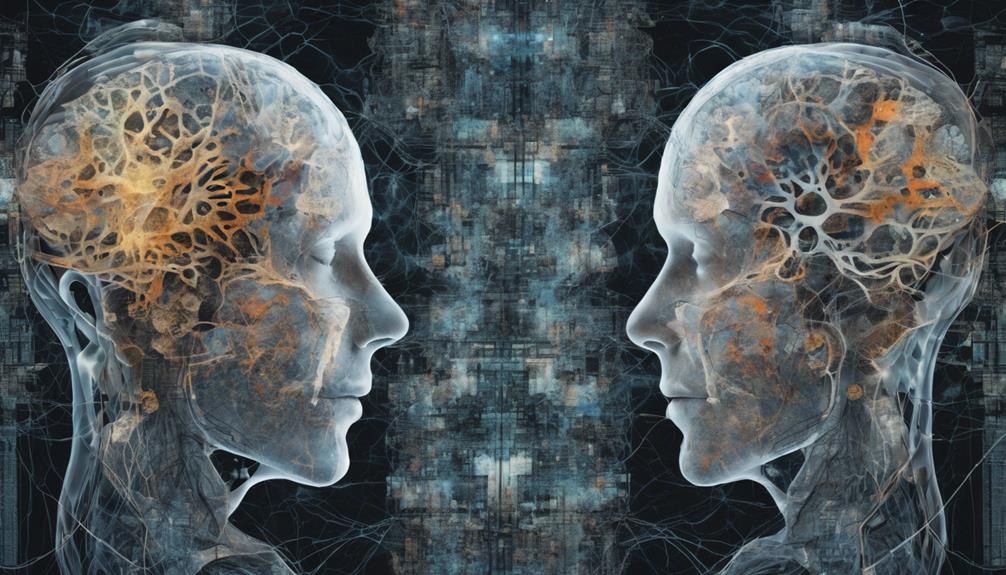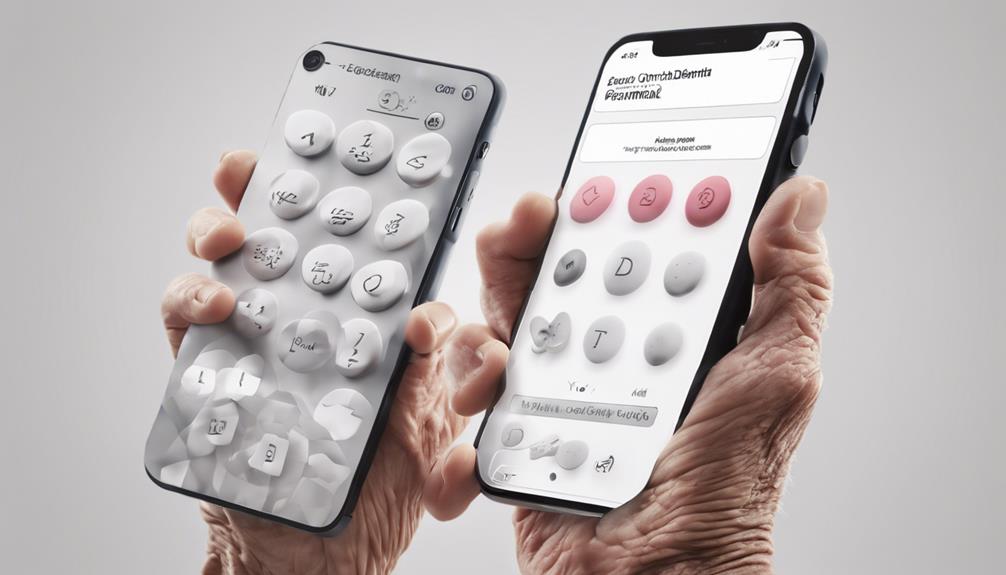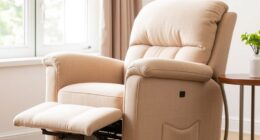Navigating the complex terrain of dementia combined with behavioral issues is like trying to untangle a intricately woven tapestry made up of threads symbolizing cognitive decline and behavioral complexities.
The intertwining nature of these elements poses a challenge that beckons us to delve deeper into understanding the nuances of ICD-10 coding for this condition.
Let's explore the diagnostic criteria, treatment modalities, and the unique hurdles encountered in managing the behavioral symptoms associated with this complex presentation.
Key Takeaways
- ICD-10-CM code F02.81 crucial for diagnosing dementia with behavioral disturbances
- Behavioral disturbances include agitation, aggression, hallucinations, and delusions
- Importance of individualized care plans and non-pharmacological interventions
- Multidisciplinary approach involving healthcare professionals and caregivers for holistic management
Overview of Dementia With Behavioral Disturbance
In understanding dementia with behavioral disturbance, it's crucial to recognize the complex interplay between cognitive decline and disruptive behaviors that individuals may experience. The ICD-10-CM code F02.81 is a vital tool in the diagnosis of this condition, falling under the Mental, Behavioral, and Neurodevelopmental Disorders category. This code helps healthcare providers identify and address the behavioral disturbances often seen in neurocognitive disorders. Conditions such as Huntington's disease and Parkinson's disease can manifest with dementia and behavioral issues, further emphasizing the importance of accurate diagnosis using the appropriate code.
Moreover, the back-references associated with the F02.81 code, such as Applicable To and Use Additional, offer additional guidance for healthcare professionals navigating the complexities of dementia with behavioral disturbance. Understanding that atypical virus infections of the central nervous system and prion diseases are also linked to this physiological condition underscores the need for a comprehensive approach to managing behavioral disturbances in individuals with dementia. By recognizing these connections, we can better support and care for those affected by this challenging condition.
Diagnostic Criteria for Behavioral Disturbance

Navigating the complexities of diagnosing behavioral disturbances in dementia requires a comprehensive understanding of the specific criteria that define these challenging symptoms. In dementia, behavioral disturbances encompass a range of behaviors such as agitation, aggression, wandering, hallucinations, and delusions. Evaluating these symptoms is vital for accurate diagnosis and effective treatment planning. Below is a table outlining some key diagnostic criteria for behavioral disturbances in dementia:
| Behavioral Disturbance | Description | Management Strategies |
|---|---|---|
| Agitation | Restlessness, pacing, verbal outbursts | Behavioral therapies, calming environment |
| Aggression | Physical or verbal hostility towards others | Anger management, caregiver education |
| Wandering | Aimless movement, getting lost | Safety measures, structured routines |
Effective management of these behaviors often involves a combination of pharmacological interventions and non-pharmacological approaches tailored to the individual's needs and preferences. By addressing these criteria with sensitivity and personalized care, healthcare providers can offer better support to individuals experiencing behavioral disturbances in dementia.
ICD-10 Coding for Dementia Symptoms
Understanding the intricate ICD-10 coding system for dementia symptoms can provide valuable insights into the complexities of diagnosing and managing this condition effectively. When dealing with dementia and behavioral disturbances, familiarity with ICD-10-CM code F02.81 is crucial. Here are some key points to consider when using this code:
- Utilize additional codes to specify different types of dementia with specific disturbances.
- The 2024 edition of ICD-10-CM F02.81, covering dementia in other diseases with unspecified severity and behavioral disturbance, was implemented from October 1, 2023.
- Annotations like Applicable To, Code Also, and Use Additional may provide important information related to F02.81.
- Be aware of potential back-references to related conditions and codes when assigning F02.81.
Treatment Approaches for Behavioral Disturbance

Moving forward from exploring ICD-10 coding for dementia symptoms, we now focus on effective treatment approaches for addressing behavioral disturbances in individuals with dementia. Non-pharmacological interventions like behavior therapy and structured routines play a crucial role in managing behavioral symptoms. These interventions aim to provide a sense of structure and familiarity, which can help reduce anxiety and agitation in dementia patients. In cases where behavioral symptoms are severe, healthcare providers may consider using antipsychotic medications, but only after careful evaluation of risks and benefits.
Developing individualized care plans is essential to address specific triggers and unmet needs that may be contributing to behavioral disturbances. By tailoring interventions to the unique needs of each individual, caregivers can better support dementia patients in managing their behaviors. Additionally, caregiver education and support are vital components in effectively managing behavioral symptoms. Educating caregivers about dementia and providing them with strategies to cope with challenging behaviors can enhance the quality of care provided.
Embracing multidisciplinary approaches involving healthcare professionals, caregivers, and social services can ensure comprehensive support for individuals with dementia and behavioral disturbances.
Challenges in Managing Behavioral Symptoms
When faced with the challenges of managing behavioral symptoms in dementia, caregivers and healthcare professionals must work collaboratively to provide comprehensive support. It's vital to approach these symptoms with empathy and understanding, considering the individual's unique needs.
- Tailored Interventions: Personalizing care plans based on the specific behavioral symptoms and triggers can lead to more effective management.
- Non-pharmacological Interventions: Techniques such as creating a calming environment, establishing structured routines, and incorporating music therapy can help mitigate behavioral disturbances.
- Multidisciplinary Approach: Involving a team of healthcare providers, including doctors, nurses, psychologists, and occupational therapists, can offer a holistic approach to managing behavioral symptoms.
- Pharmacological Interventions: While non-pharmacological methods are preferred, in severe cases, medications may be necessary to address aggression or hallucinations carefully.
Frequently Asked Questions
What Is Dementia With Behavioral Disturbances?
We understand the importance of recognizing dementia with behavioral disturbances.
This condition involves cognitive decline paired with changes in behavior, such as agitation, aggression, and hallucinations. It can stem from various causes like Alzheimer's disease or frontotemporal dementia.
Managing these behavioral disturbances is vital for enhancing the well-being of both individuals and caregivers.
What Is the ICD-10 Code for Dementia With Behavioral Disturbances?
Sure, the ICD-10 code for dementia with behavioral disturbances is F02.81. It covers dementia in other diseases with unspecified severity and behavioral issues.
The code became effective on October 1, 2023, in the 2024 ICD-10-CM edition. Proper documentation and coding are crucial in accurately capturing behavioral disturbances in dementia.
F02.81 may contain annotations for additional guidance. It's essential to code these conditions correctly for effective patient care.
What Is the Second Most Common Behavior Manifestation Associated With Dementia?
Agitation is a common behavior manifestation associated with dementia. It encompasses disruptive or distressing verbal and physical behaviors. Addressing agitation is crucial as it impacts both the individual with dementia and their caregivers.
Effective management involves a mix of non-pharmacological and pharmacological interventions. Understanding the triggers and root causes of agitation is vital for providing proper care and support to those with dementia.
What Is the ICD-10 Code for Behavioral Disturbances?
Sure thing!
The ICD-10 code for behavioral disturbances is F01.81. This code is crucial for accurately tracking and treating conditions like dementia with behavioral issues. Proper coding ensures healthcare providers can provide the best care possible for individuals experiencing these challenges.
It's important to pay attention to these details to offer the most effective support and treatment for those dealing with behavioral disturbances.
Conclusion
In conclusion, navigating dementia with behavioral disturbance can be challenging, but with proper support and understanding, individuals can find ways to manage their symptoms effectively.
As the saying goes, 'A smooth sea never made a skilled sailor.' Each obstacle faced on this journey can lead to growth, resilience, and a deeper connection with those affected by this condition.
Let's continue to advocate for better care and resources for those living with dementia and behavioral disturbances.









